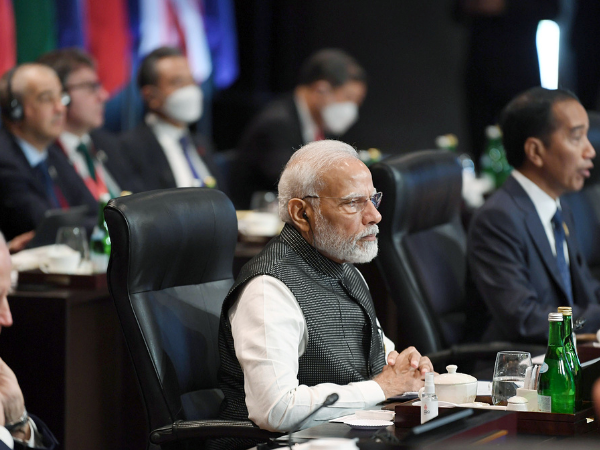- Saturday, April 20, 2024

By: Shubham Ghosh
Two important developments took place in the realm of global politics this week. On one hand, Japanese prime minister Fumio Kishida visited India where he unveiled his plan for a free and open Indo-Pacific before heading for Ukraine. On the other, Chinese president Xi Jinping went to Russia to consolidate the Eurasian alliance with Moscow.
While Kishida called India an “indispensable partner”, Xi said in Russia that China and Russia are each other’s biggest neighbours and consolidating and developing long-term good neighbourly relations with the Kremlin is consistent with Beijing’s historical logic and strategic choice.
Also in other parts of the world, other developments were taking place. While Iran and Saudi Arabia, two intense rivals in the Middle East, made a pace deal, South Korea and Japan — two major global economies — held their first summit in over a decade. While the development in the Middle East can be perceived as a major diplomatic triumph for China and setback for the US, the one in east Asia implies the exact opposite as the US made some significant gains in China’s backyard.
These realignments indicate at the emergence of a new reality in the global order. According to C Raja Mohan, an international affairs expert, who wrote in a piece in The Indian Express, “The realignment and dealignment underway is very much part of the emerging post-post-Cold War world. The rules governing the world that emerged at the end of the Cold War during 1989-91 have been under stress for a while now. The Russian aggression against Ukraine and the deepening conflict over Taiwan have accelerated the breakdown. The conflict envelops the economic and technological domains as well.”
India, like all other nations, is also adjusting to the dismantling of the old order and according to Raja Mohan, the change in regional dynamic to both the east and west of India seeks a form of diplomacy which is “nimble, flexible and open-ended”.
One of the big challenges for Modi is the major transformation in the partnership between China, its hostile neighbour, and Russia, its time-tested ally. Xi has met his Russian counterpart Vladimir Putin more than three dozen times since becoming the leader of China. The expectations from Xi’s latest visit to Moscow, his first since Russia invaded Ukraine last year, are, according to Raja Mohan, “are running high as both Xi and Putin have talked up the visit in signed articles for Russian and Chinese media, respectively”.
While there is a speculation that the Chinese leader might try and promote a peace settlement between Russia and Ukraine, another group suspects Xi might try to reinforce Putin’s position while talking about peace in the east European nation, Raja Mohan wrote in his piece.
“Cynical observers say Moscow has done Beijing a great favour by tying down the West into a conflict with Russia in Europe, thereby easing the US pressure on China in Asia,” he said. Xi, in a way, has a huge stake in bolstering Putin, it is believed.
For India, Putin’s growing dependence on Xi might be a long-term worry. There are at least three ways of looking at the situation, according to Raja Mohan.
First, a weakened Russia will inevitably become a lesser partner to China and that will make it a less reliable partner for Delhi.
Second, Russia’s relations with India will not be affected whatsoever despite the growing strategic ties between Moscow and Beijing.
About the third, Raja Mohan wrote, “A third view is less sanguine about the future of the Sino-Russian partnership and would hedge against the worst possible outcomes for India in relation to China. Might this involve building stronger strategic ties with the US, Europe and Japan? This basic direction has been set over the last decade even as Delhi has held onto its old ties to Moscow. The next few weeks might give us some clues on how India might navigate the turbulence in great power relations.”
Prime minister Narendra Modi is set to visit to Japan, Australia and the US in the days ahead while hosting both the Russian and Chinese leaderships during the upcoming Shanghai Cooperation Organisation and G20 summits. A lot will be seen about how India’s geopolitics undergoes a potential restructuring in a world which is fast changing.
![]()